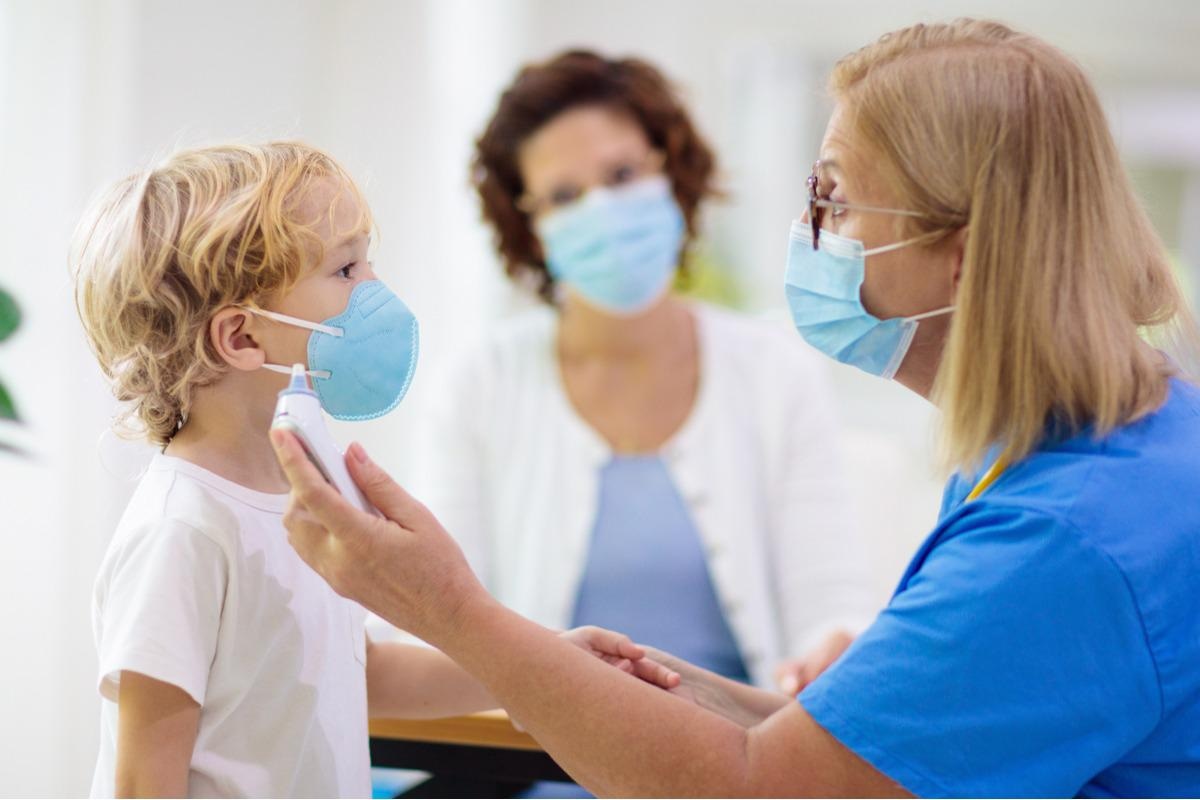Mucosal immunity is vital to respiratory barriers against infections, such as the circulating severe acute respiratory syndrome coronavirus 2 (SARS-CoV-2).
However, little is known about mucosal antibodies to this virus in children with coronavirus disease 2019 (COVID-19), including the uncommon complication of multisystem inflammatory syndrome in children (MIS-C).
 Study: Systemic and Lower Respiratory Tract Immunity to SARS-CoV-2 Omicron and Variants in Pediatric Severe COVID-19 and Mis-C. Image Credit: FamVeld/Shutterstock
Study: Systemic and Lower Respiratory Tract Immunity to SARS-CoV-2 Omicron and Variants in Pediatric Severe COVID-19 and Mis-C. Image Credit: FamVeld/Shutterstock
A new study examines neutralizing responses to the ancestral variant of this virus, as well as against the later variants of concern.
Introduction
During the initial phase of the pandemic, children were considered to be largely spared, with low infection and transmission rates. However, a significant minority of infected children may have severe disease, or may develop post-infectious sequelae such as MIS-C.
Omicron emerged in late 2021, and is known to have a large number of mutations in the spike protein, accompanied by resistance to neutralizing antibodies induced by COVID-19 vaccination or natural infection with other variants.
For this reason, the current study, published in the journal Vaccines, looks at lower respiratory tract mucosal immunity in children, in an attempt to understand how this can neutralize emerging variants of the virus in this age group.
Hospitalized children with severe acute infection or MIS-C were included in this study. Their neutralizing antibody levels in the trachea were compared with the systemic immunity generated against the ancestral strain, and against five variants of concern (VOC), the Alpha, Beta, Gamma, Delta and Omicron, as well as variants of interest (VOI) Epsilon, Iota and Kappa. The tracheal secretions in children are considered the equivalent of bronchoalveolar secretions in this study, since bronchoalveolar lavage (BAL) is hardly ever carried out in children with this infection.
The study data came from the Overcoming COVID-19 Network study, focused on severe complications of pediatric COVID-19 at Boston Children’s Hospital. Patients with severe infection were tested using both plasma samples and endotracheal aspirates, but the latter was obviously not available for children with mild infection. None of the subjects had immunosuppression, terminal lung disease, or life support limitations.
There were five paired samples of plasma and endotracheal aspirate (ETA) from severe COVID-19 patients, and five from MIS-C patients. All were before the newer VOCs or VOIs emerged. The median age was 10 years, and the median hospital admission duration was ~14 days. There were no deaths before discharge.
Findings
All the plasma samples contained neutralizing antibodies to the ancestral SARS-CoV-2 variant, without significant differences between the variants. With severe COVID-19, the levels were 4- to 11-fold lower against the Alpha VOC, but 20-fold, 30-fold and 50-fold lower against the Gamma, Beta and Omicron VOCs. However, for MIS-C, the titers were lower for all variants.
With pediatric COVID-19, total antibody levels, immunoglobulin (Ig)M, IgG and IgA, were all raised in plasma compared to ET levels, by 40-fold for IgM vs 54-fold for IgG and IgA. Conversely, with MIS-C, IgM antibody levels were raised by 44-fold in ETA, but IgG by ~170-fold and IgA by 75-fold.
ETA neutralizing antibodies were found in only two COVID-19 vs 3 MIS-C patients, against the ancestral strain. The patient with the highest titer had been intubated for 8 days, of which the sample was taken on the fourth day. This sample showed high activity against all variants.
However, for other samples, neutralizing titers were lower against the variants. In fact, there was a 2-35-fold drop against all SARS-CoV-2 variants compared to the plasma samples, though the levels in the two sample types were correlated for neutralizing activity.
Implications
The results show that children with severe COVID-19 or MIS-C have weak neutralizing activity in the respiratory mucosa of the lower tract, against all variants of the virus. This leaves them vulnerable to newer variants. In fact, children have been hospitalized in increasing numbers with the emergence of Omicron, as explained by the weak neutralizing titer in the respiratory mucosa.
The antibody escape seen with the newer variants could be due to the mutational alteration in antibody-binding sites on the spike, a higher binding affinity for the angiotensin-converting enzyme 2 (ACE2) receptor, or an increase in the positive charge on the virus spike, increasing the binding to the host cell’s negatively charged surface.
Again, the collection of the ETA samples occurred early in the course of the disease, which may account for the lower neutralizing titer, which is in contradiction to an earlier study that showed high activity against the ancestral variant after day 4 from symptom onset.
More studies should be undertaken to confirm low neutralizing antibody levels in the lower respiratory tract in children, as this could lead to long Covid and other debilitating sequelae.
Low mucosal immunity against Omicron and other variants suggest that these children can be re-infected with evolving variants”, explained the researchers.
Vaccines that are very safe as well as associated with the induction of mucosal immunity in the upper and lower respiratory tract would help, "to provide both protection from disease as well as reduce viral titers in respiratory tract and limit viral transmission to curtail the spread of SARS-CoV-2”, the researchers confirmed.